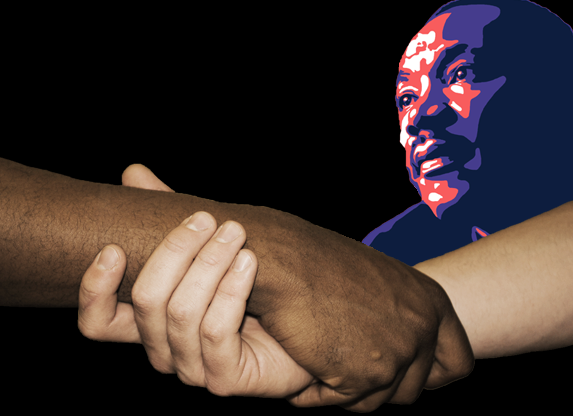Had staff members not made any progress in diversifying SRU since it’s opening in the 1880s, the school would be populated mostly with young women of Caucasian descent studying to be school teachers, according to Dr. Robert Watson, university historian and author of “Slippery Rock University: The Legend Behind the Name.”
Presently, SRU boasts that it is diverse in many aspects—ethnically, culturally, religiously, and the university could not have progressed in many of the ways that it has without the influence of students from different cultures, according to Watson.
“Our earlier students of color came to us in the 1950s and 1960s, and we never at that time celebrated the contributions of diverse races and religions and cultures like we do today,” Watson said. “African American History Month was something that was not celebrated all that long ago on our campus. It’s only been in the last couple of decades that we’ve focused more on the background of our students and the contributions the races they represented brought to our society and thus to ourcampus.”
Assistant Professor of Public Health and Social Work, Dr. Christophas Walker, said it is his hope that students and staff can become especially aware of the contributions of students of African descent at Slippery Rock in the month of February, while African American History Month is celebrated nationally.
Walker said many students don’t realize the culture and diversity that they experience today is unique to our time period.
It was common for all the schools to, at some point in time, have been segregated,” he said. “It’s within the history of education for the United States. It’s why we have Brown vs. the Board of Education–to desegregate schools. Most people, when they hear that, they think [segregation was] just something that happened in the south, but it wasn’t. It also happened in the north.”
Dr. Watson said he sees the greatest achievements in the sharing of lifestyle and cultural activities that African Americans and students of African descent have brought to Slippery Rock.
“I think one major contribution provided by students of color on the SRU campus has been the ability to develop an understanding of individuals from a different culture from what students were used to,” he said.
Walker said he believes the single greatest achievement of students of African descent at SRU has been their ability to share their viewpoint and perspectives, as well as their culture.
Walker listed examples of influence of students and staff, including new university policies, new viewpoints and the examination of social justice issues, a sensitivity to change and people with different backgrounds, African American influence on poetry and writing, science, mathematics, and other academics, and the introduction and incorporation of new and various cultural experiences.
“You might have somebody that came here to Slippery Rock from the Philadelphia area,” he said. “And they listen to a certain kind of music. They would be introducing that music to their roommates or the people on their floor who probably have never heard that music.”
According to Watson, the ability to gain learning and understanding from those different than us is important.
“What Black History Month brings to our campus today is a wealth of opportunity for understanding,” he said.
Associate Professor of Special Education, Dr. Michelle McCollin, shared a similar opinion.
“No one likes to eat bland potatoes,” she said. “A diverse campus helps you to develop your character. When you come into my presence, your life is going to be changed. When I come into your presence, my life is going to be changed. If we all were the same, diverse didactic critical thinking will not take place.”
Ensuring diversity on campus is important, but in order to do so, we must let go of ourselves as individuals and realize the power that we hold when we work together, according to Dr. McCollin.
“[In order to ensure diversity], we can look at hiring practices, active recruitment, supportive students and faculty, and the release of this whole idea that one person is better than another,” she said. “Release it. Understand that when I link with you, I empower you. You empower me. We are both better for it.”
Walker believes that we must step up, rising to the challenge of greatness.
“Before there was somebody like Barack Obama, there was somebody like Frederick Douglass, and he did extensive things,” he said.
Looking at the progress and achievements of students of African descent on our campus in past and present years, McCollin acknowledges that the university has a long way to go before we meet total equality and unity on campus.
“For me, African American History Month is about all of us coming together and standing in the middle of the fire and not yielding back,” she said.








